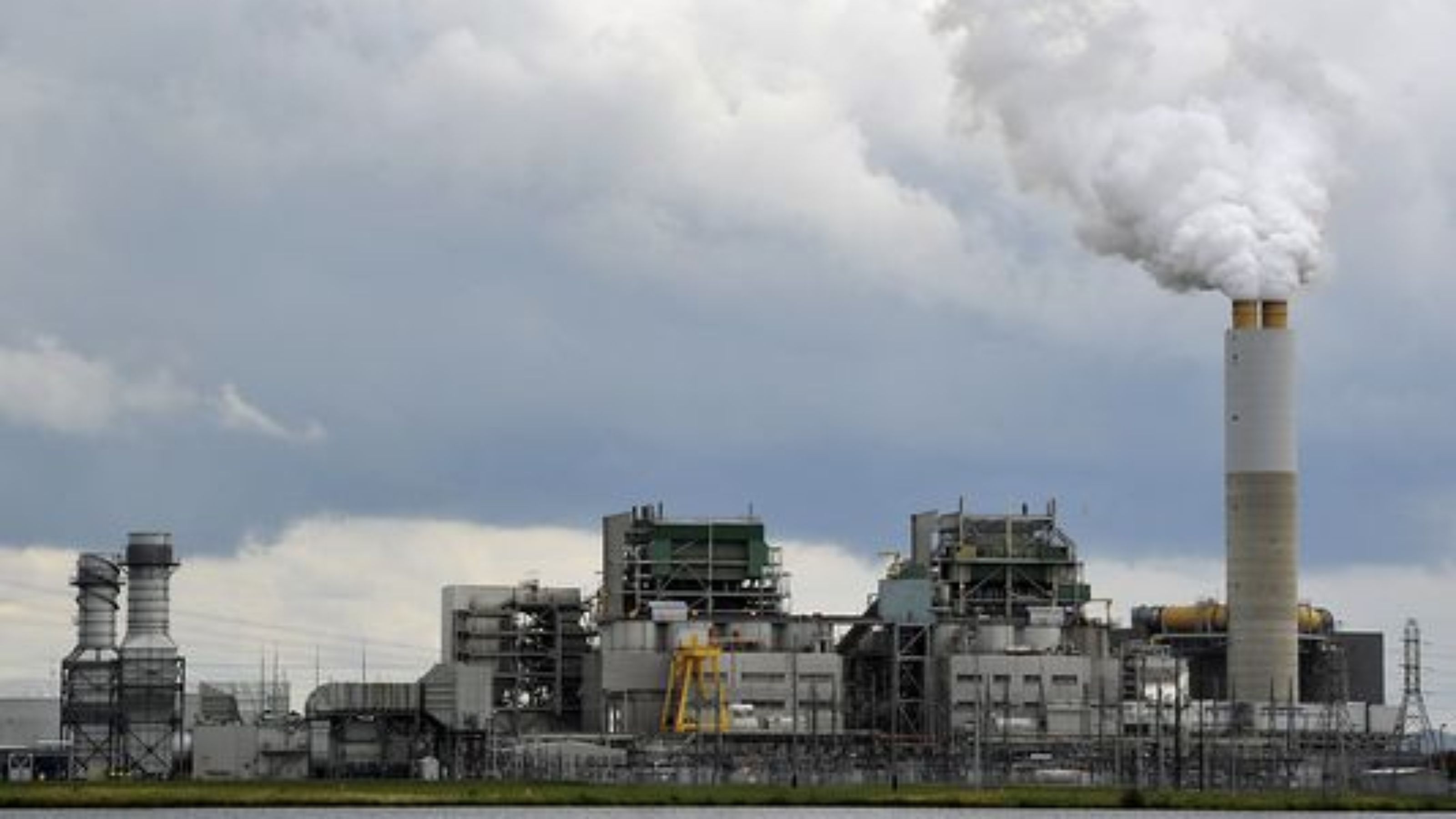North Carolina environmental officials said Tuesday that they are fining Duke Energy $25 million over pollution that has been seeping into groundwater for years from a pair of coal ash pits at a retired power plant.
The state Department of Environment and Natural Resources called it the state's largest penalty for environmental damages. It issued the fine over ongoing contamination at the L.V. Sutton Electric Plant outside Wilmington. The site includes a pair of unlined dumps estimated to hold 2.6 million tons of ash.
The state touted the fine as an important development to hold Duke accountable for years of pollution.
"Today's enforcement action continues the aggressive approach this administration has taken on coal ash," said Donald R. van der Vaart, the department's secretary.
But environmental groups said the fine doesn't force Duke to clean up the pollution — something they've been trying to get the $50 billion Charlotte-based company to do for years. Without that, groundwater near Flemington, a largely working-class community, will remain contaminated, said Kemp Burdette, executive director of the nonprofit Cape Fear River Watch.
"A $25 million fine doesn't do anything to clean up the contamination caused by Duke's coal ash ponds," Burdette said.
"They're not forcing Duke to start treating groundwater, or start doing something to clean up the contamination. What they need to be doing is forcing them to clean it up. If they want to fine them, fine. The important thing here is getting the groundwater cleaned up," he said.
Charlotte-based Duke Energy has 30 days to appeal the fine.
The company did not immediately respond to email or phone messages Tuesday.
The state said monitoring wells near Duke's dumps at Sutton showed readings exceeding state groundwater standards or boron, thallium, selenium, iron, manganese and other chemicals. Thallium was used for decades as the active ingredient in rat poison until it was banned because it is highly toxic.
With thallium, the state said it determined that Duke allowed the toxic chemical to "leach into groundwater at the Sutton facility for 1,668 days."
Duke's 32 coal ash dumps scattered at 14 sites across the state have been under intense scrutiny since last year, when a pipe collapse at the company's plant in Eden coated 70 miles of the Dan River in gray sludge. The ash, which is the waste left behind when coal is burned to generate electricity, contains toxic heavy metals.
North Carolina lawmakers approved new legislation last year requiring Duke to dig up or cap all of its coal ash dumps by 2029.
And federal prosecutors recently filed multiple criminal charges against Duke over years of illegal pollution leaking from coal ash dumps at five North Carolina power plants.
The three U.S. Attorney's Offices covering the state charged Duke with nine misdemeanor counts involving violations of the Clean Water Act. The prosecutors say the nation's largest electricity company engaged in unlawful dumping at coal-fired power plants in Eden, Moncure, Asheville, Goldsboro and Mt. Holly.
Duke has said that it has already negotiated a plea agreement under which it will admit guilt and pay $102 million in fines, restitution and community service. The company said the costs of the settlement will be borne by its shareholders, not passed on to its electricity customers.
While Sutton was not one of the plants, state water quality officials knew for years about the contamination at the unlined ash pits but took no enforcement action until August 2013 — after the Southern Environmental Law Center, on the behalf of citizens group, tried to sue Duke for violating the Clean Water Act.
"The easiest thing for Duke Energy is to write a check...But this proposed fine does not eliminate or clean up one ounce of coal ash pollution," said Frank Holleman, senior attorney for the environmental legal group.


